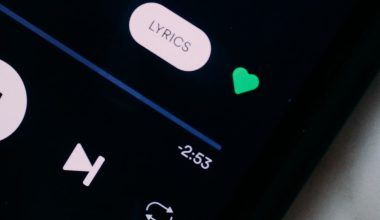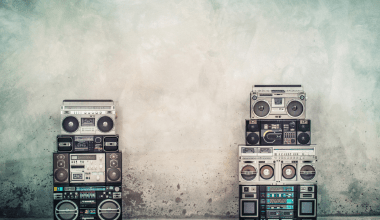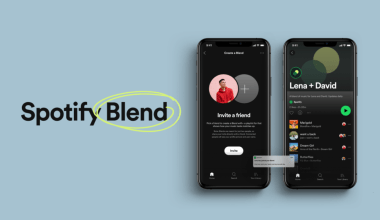Imagine recording your favorite song, a podcast, or even a YouTube video, and your voice sounds muffled or unclear. It’s frustrating, right? This is why you need the best mic for voice recording. A good microphone doesn’t just capture your voice; it makes sure every word sounds crisp, clear, and professional.
Whether you’re a singer, a podcaster, or just someone who loves recording their voice, having the right mic can make a big difference. In this blog, we’ll talk about everything you need to know to pick the best mic for voice recording. Don’t worry—no technical jargon here, just simple and friendly advice!
1. What Makes a Microphone “The Best” for Voice Recording?
When you’re buying a microphone, you don’t just want something that works; you want something that works well. Here’s what to look for:
a. Clear Sound
A good mic should make your voice sound natural and smooth, without adding weird echoes or background noise.
b. Easy to Use
If you’re new to recording, you’ll want a microphone that’s easy to set up. USB microphones are a great starting point because you just plug them into your computer, and you’re good to go.
c. Durable and Long-Lasting
You don’t want to keep buying a new microphone every year. Look for something sturdy that will last a long time.
d. Fits Your Budget
Microphones can be expensive, but you don’t need to break the bank. There are great options at every price point.
2. Types of Microphones You Should Know About
There are many kinds of microphones, but let’s focus on the ones most people use for voice recording.
a. Dynamic Microphones
These are tough and reliable. They work well in noisy rooms because they don’t pick up much background sound. If you’re recording in a regular room without soundproofing, this is a good choice.
Examples: Shure SM58, Rode PodMic
b. Condenser Microphones
These are super sensitive and capture every detail of your voice. They’re great for professional studio recordings but need a quiet and controlled environment.
Examples: Audio-Technica AT2020, Rode NT1-A
c. USB Microphones
Perfect for beginners, these microphones connect directly to your computer. You don’t need extra equipment to start recording.
Examples: Blue Yeti, Samson Q2U
d. Ribbon Microphones
These are old-school but still loved for their warm, vintage sound. They’re delicate, so handle them with care!
Examples: Royer R-10, AEA R84
3. Why Your Purpose Matters When Choosing a Mic
The best mic for voice recording depends on what you’ll be using it for. Let’s look at a few examples:
a. For Singing
If you’re a singer, you need a mic that captures all the highs and lows of your voice. A condenser mic like the Rode NT1-A is an excellent choice.
b. For Podcasts
Podcasters often record in regular rooms with some background noise. A dynamic mic like the Shure SM7B can help focus on your voice and block out other sounds.
c. For Voiceovers
Voiceover artists need a mic that makes their voice sound rich and professional. Condenser mics are the best for this purpose.
d. For Beginners
If you’re just starting out, a USB microphone like the Blue Yeti is a simple and affordable option.
4. The Best Mics for Voice Recording: Our Top Picks
Here are some of the best microphones available, whether you’re a beginner or a pro:
a. Blue Yeti
- Type: USB
- Why It’s Great: Easy to use, multiple recording modes
- Best For: Beginners, podcasters
b. Audio-Technica AT2020
- Type: Condenser
- Why It’s Great: Affordable, professional-quality sound
- Best For: Singing, voiceovers
c. Shure SM7B
- Type: Dynamic
- Why It’s Great: Excellent sound isolation, durable
- Best For: Podcasts, broadcasting
d. Samson Q2U
- Type: Dynamic/USB
- Why It’s Great: Affordable and versatile
- Best For: Beginners on a budget
e. Rode NT1-A
- Type: Condenser
- Why It’s Great: Low self-noise, crystal-clear sound
- Best For: Studio vocals
5. How to Set Up Your Microphone for Great Sound
Setting up your mic correctly is just as important as choosing the right one. Here’s a step-by-step guide:
a. Use a Pop Filter
A pop filter reduces harsh sounds from “P” and “B” words. This makes your voice sound smoother.
b. Position the Mic Properly
Keep the microphone 6–12 inches away from your mouth. You can also angle it slightly to avoid sharp breathing sounds.
c. Reduce Background Noise
Turn off fans, close windows, and use a quiet room to minimize unwanted noise.
d. Test and Adjust
Record a short clip and listen to it. Adjust the mic’s position or settings until it sounds perfect.
6. Accessories That Make Recording Better
You don’t need to spend a lot, but these accessories can help improve your recordings:
a. Microphone Stand
A stand keeps your mic steady, so you don’t have to hold it while recording.
b. Pop Filter
This small accessory can make a big difference in how professional your recordings sound.
c. Shock Mount
A shock mount reduces vibrations, so movements or desk bumps won’t ruin your recording.
d. Audio Interface
If you’re using an XLR mic, you’ll need an audio interface to connect it to your computer.
7. Tips for Amazing Voice Recordings
Here are some simple tips to get the most out of your microphone:
- Warm Up Your Voice: Spend a few minutes doing vocal exercises to prepare.
- Drink Water: Stay hydrated to keep your voice clear.
- Practice: The more you record, the better you’ll get at it.
- Edit Your Audio: Use free tools like Audacity to clean up background noise and adjust levels.
8. USB vs. XLR Microphones: What’s the Difference?
Not sure whether to go for USB or XLR? Here’s a quick comparison:
- USB Microphones: Easy to use, affordable, and perfect for beginners.
- XLR Microphones: High-quality sound, more flexible, but require extra equipment like an audio interface.
If you’re just starting, go for USB. If you want professional-quality recordings, XLR is worth the investment.
9. FAQs About the Best Mic for Voice Recording
Q1. Do I Need an Expensive Microphone?
Not necessarily! There are great options for every budget. Focus on what you need rather than the price tag.
Q2. Can I Use a Headset for Voice Recording?
While headsets can work in a pinch, they don’t deliver the same quality as a dedicated microphone.
Q3. How Can I Improve My Room Acoustics?
Use rugs, curtains, and even bookshelves to absorb sound and reduce echo.
Conclusion: Finding Your Best Mic for Voice Recording
Picking the best mic for voice recording doesn’t have to be overwhelming. Start by thinking about what you’ll use it for and what your budget is. From USB mics like the Blue Yeti to professional options like the Shure SM7B, there’s something for everyone.
Remember, even the best mic won’t perform well without proper setup and a bit of practice. So get started, experiment, and enjoy the process of recording your voice in the best quality possible!
Related Articles:
For further reading, explore these related articles:
- How Do You Get Crowdfunding for Your Music or Creative Projects?
- Promo Cards on Spotify: A Game Changer for Artists
For additional resources on music marketing and distribution, visit Deliver My Tune.






